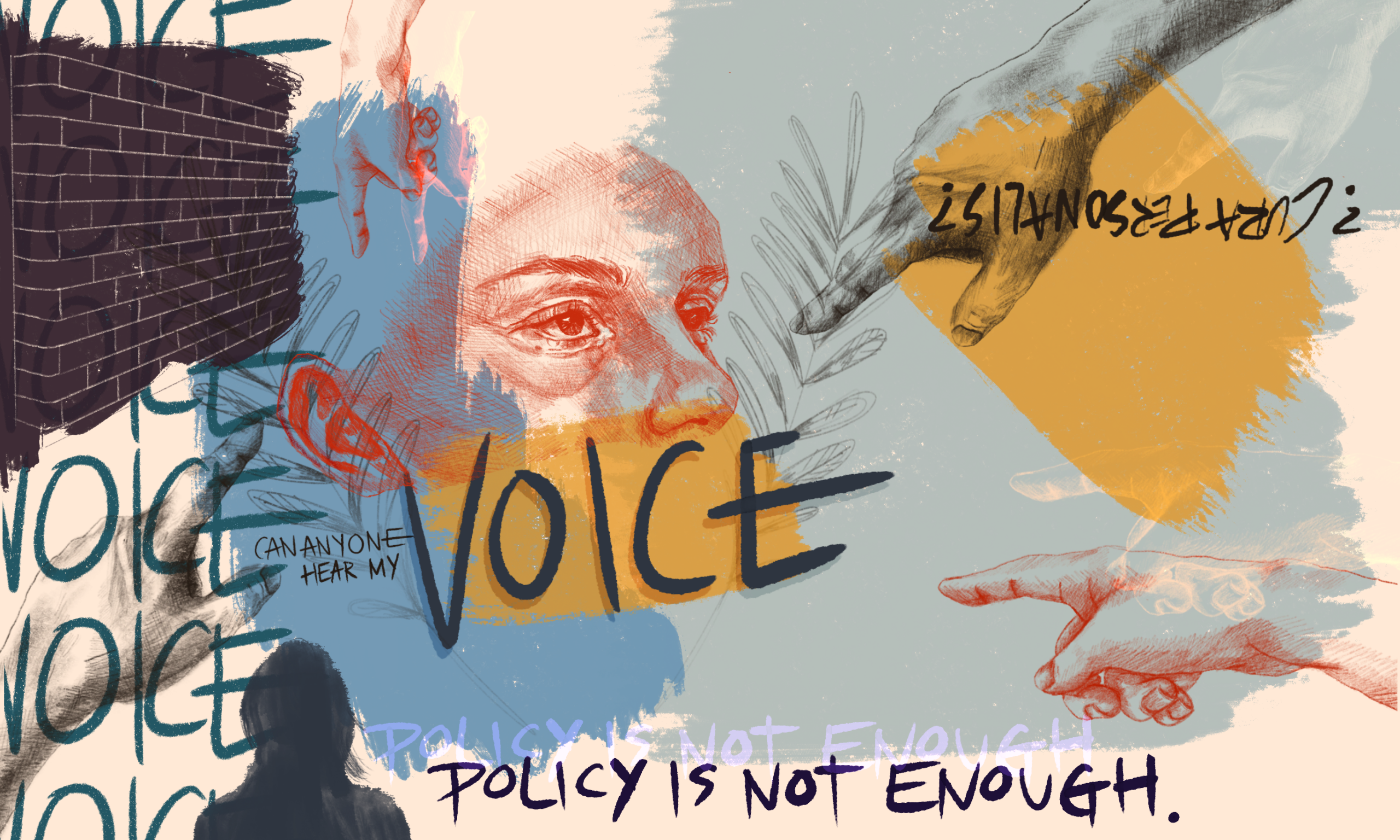This piece was contributed by a Georgetown student who wishes to remain anonymous.
Content warning: This article discusses sexual assault and harassment.
Under the strobing lights and blaring music of a Georgetown club’s house party, I made eye contact with the man who raped an acquaintance of mine. Drink in hand and surrounded by adoring eyes, he smiled and nodded at me, and I was exhausted. I knew that other members of the organization were aware he had sexual assault allegations against him. As a survivor of sexual assault, I was filled with rage and hollowness at how this wealthy white man, a known rapist, was so supported in an environment cultivated by people who claimed to be allies of survivors and friends. I noticed this was a prevailing issue in this club and among others at Georgetown. So, with all the lessons of conscientiousness and action that have been instilled in me time and time again in my “Jesuit education,” I did something about it.
I wrote a letter, outlining the toxicity for women and survivors in our organization clearly and concisely. I gathered signatures and testimonials. With the help of other organization members, I suggested internal policy changes that would allow for the fluid reporting of perpetrators and the empowerment of survivors. I sent the letter, and after a flurry of meetings and calls, the organization had new HR policies and reporting mechanisms. I received praise and support from many, including club leadership, for my activism. At the time, it felt like a win.
Later in the fall semester, I filed a no-contact order through the university against a former partner and friend. Over the course of the month, I had begun to realize that I was gaslit, abused, and sexually harassed by this man. I was constantly anxious—unable to eat or sleep. It was only through the incredible counseling support system of Health Education Services that I felt comfortable acknowledging what had happened to me was assault and abuse.
To this day, I am still recovering from the damage to my self-esteem and sexuality this relationship caused me. Because I did not want to go through the despicable and humiliating Title IX process while feeling so confused about what happened to me, I opted for a non-legal, strictly institutional no-contact order. Given the nature of his threats and actions, I also set up a safety plan with the campus police department. Plus, he was planning on not living on campus in the upcoming semester, so I believed that I would have ample time to distance myself from him and move on.
Over the past semester, I have tried to heal—again. Unfortunately, my progress has been hindered because of his persistent presence in my mind and in the social circles we share. The primary overlap in our lives would continue through the aforementioned organization, which I had spent so much time reforming and pushing towards sexual assault advocacy. Of course, I used the mechanisms that I myself had advocated for to notify appropriate leadership about my no-contact order. They assured me that I would not be sharing spaces with him and that they would do their best to support me and accommodate me through alternate programming—a position that only survivors are ever put in.
As survivors, we are the ones that always have to take the alternate route. We are the only ones that have to change our schedules, switch housing arrangements, and uproot our lives while we wait for months for “justice” to be served. Even if a hearing or trial materializes, justice is rarely delivered. Just ask Anita Hill or Dr. Christine Blasey Ford. But, I thought, that’s just the way it goes, so I was as satisfied as I could be with the response.
A few weeks after informing leadership about the order, I found out that the man who had weaponized my sexuality, who gaslit me into believing I was mentally unstable and undeserving of love, who convinced me I was the broken person in our relationship, who yelled at me and made me cry and pushed me down, was receiving a leadership position within the organization. Not only was he now in charge of coordinating elements that would impact my access and engagement with the club, but he was now on the same human relations central committee that had been formed in response to my calls for change. I could have laughed if I were not faced with the utter disregard for not just my experiences and advocacy, but for all of the women in that organization that called for change along with me.
I gathered information. I am still trying to find out how this could have happened, and my few true allies have done all that is in their power to combat this. Fortunately, my abuser no longer hypocritically sits on the HR committee that I helped fashion, but he continues to hold a leadership position in the club. Maybe past communications failed. Maybe the policies weren’t good enough. Regardless, I cannot be my only advocate.
I am so fucking tired.
Georgetown and its students say survivors are not alone. We write it on the walls of our buildings and host rallies and shout together, but what will you do when the perpetrator is your friend or partner? What will you do when rejecting them means a major change in your life? What will you do when empowering a survivor is inconvenient for you? What will you do when your student organization is enabling abusers? What action will you actually, truly take to make sure a survivor is not alone?
Policies are essential. Ensuring that reporting mechanisms and proper channels are established is essential. But policies aren’t enough. If leadership is apathetic and self-interested, there is little room for the experience of the survivor to even exist and be heard, let alone be empowered and supported. Hold yourself and your friends accountable, or do not claim to be my ally. After all, my abuser was a signatory on my letter for change.
My fingers shake as I write this. I remember everything, and I see myself more clearly now. I am proud of the progress I have made, but this might be my last call to action. I wish I did not have to remain anonymous, but you–in your complicity–have made it so I must. I have the right to peace, so do some of the work yourself. One person can only push for so long. Both individuals and organizations have the responsibility to advocate for the protection and empowerment of survivors. We all need to do better. Please.
To seek help as a survivor, consult the following resources.
Confidential Resources
Health Education Services (HES): sarp@georgetown.edu
Counseling and Psychiatric Services (CAPS): 202-687-6985
D.C. Rape Crisis Center Hotline: 202-333-RAPE (7273)
Rape, Abuse and Incest National Network (RAINN): 1-800-656-4673
National Suicide Prevention Lifeline: 1-800-273-8255
Non-confidential Resources
Georgetown University Resource Center: https://sexualassault.georgetown.edu/get-help/resourcecenter/
Title IX Online Reporting Form: georgetown.protocall.info/incident-report
—
Image Credit: Deborah Han






You are heard. Georgetown University has failed in their responsibility to prevent malicious sexual attacks to happen through the fact that teachers do not have to report sexual abuse to the authorities, years of sexual misconduct in the church and has failed in working with students to make their education environment safe. Years of secrecy and corruption have become a breeding ground for criminals to get away with this. Fuck them all. Your story will come out as one of the many survivors who had to survive in the most criminal university in the country and just wish your name could be heard as well. YOU ARE HEARD!